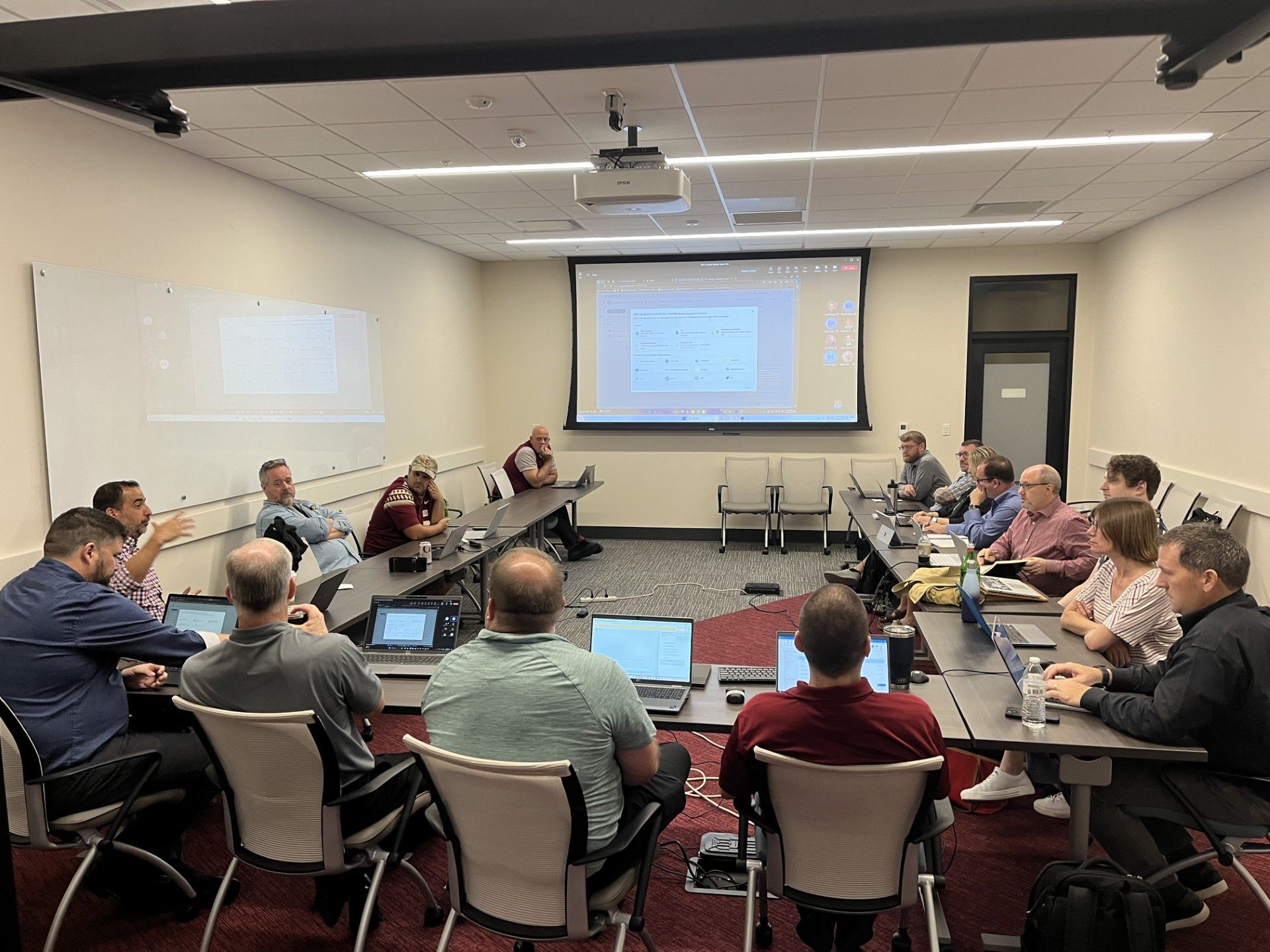FSU Faculty Reaches New Heights with Innovative AI Collaboration

Artificial intelligence has transformed multiple industries, with higher education among those affected. To stay ahead, evolution is key, and FSU faculty, including Dr. Paul Marty, Dr. Gary Tyson, Dr. Antje Muntendam, Dr. Vanessa Dennen, Dr. Bret Staudt Willet, Associate Lecturer Lance Kerwin, and Adjunct Instructor Bobby Sprinkle, are leading the way in adapting to these changes. These faculty members represent a wide range of disciplines, including business, computer science, education, modern languages and linguistics, and communication and information. They are excited to participate in an innovative AI project that has never been undertaken on campus, the Microsoft Copilot Studio pilot proof of concept project.
Microsoft Copilot Studio is the proposed idea of using artificial intelligence to create a virtual teaching assistant interface for students, designed to provide 24/7 class assistance. It would work by training Copilot to read all available materials in a class, including the syllabus, notes, PowerPoint slides, and any other text involved, and then creating a link where students can interact with a chat interface. The AI assistant could answer questions and create study guides for students. Dr. Tyson will also use Copilot to teach students how to code in artificial intelligence.
This project wouldn’t have been possible without two key contributors: Dr. Paul Marty, who coordinated faculty and ITS staff, and Microsoft, which provided expertise and guidance in generating various proofs of concept.
“We are very excited to partner with ITS, ODL, and Microsoft on this pilot test of Copilot in the Classroom! The participating faculty are using Microsoft Copilot Studio to train a custom AI on their course materials -- syllabi, readings, assignments, lectures, etc. -- and then making that AI available to their students this semester. Our goal is to learn how easily we can train an AI on our course materials, and how effectively AI can answer student questions based on those materials as a kind of interactive classroom resource. We are excited about the potential of this pilot test to improve our understanding of the role of AI in higher education and look forward to sharing our experiences about what worked, what didn't, and how we can improve the software to make it more useful for our faculty and our students in the future.” -Paul Marty, FSU College of Communication and Information Professor
We look forward to seeing how the students utilize their AI assistants and using their feedback to continuously improve the model.
